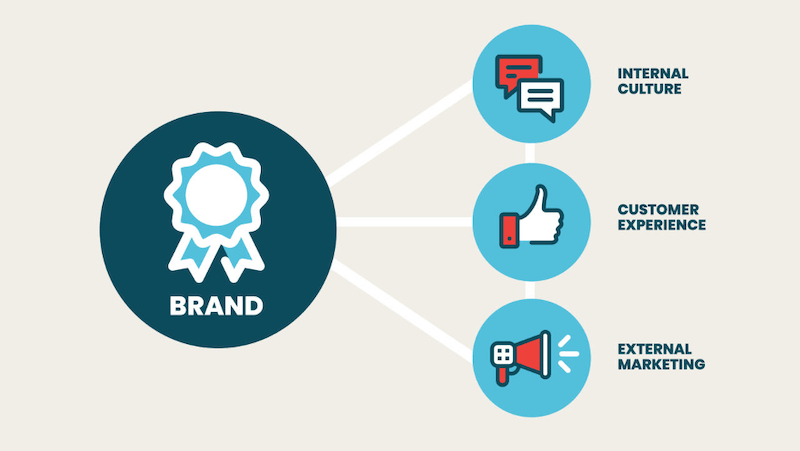Elevate Your Blogs With These SEO Tips
In the fast-paced world of digital media, blogging has emerged as a critical element of online engagement and brand building. It's no longer just a platform for sharing personal stories but has evolved into a strategic tool for digital marketing. Platforms such as TheGuideX offer blog writers to elevate their blogs and use them as a powerful marketing asset.
To leverage the full potential of your blog, you need to understand and apply Search Engine Optimization (SEO). SEO is the process of tailoring your website and content to rank higher in search engine results. This relationship between blogging and SEO is key to enhancing blog visibility, driving organic traffic, and establishing a strong online presence.
Understanding SEO Basics
Search Engine Optimization, or SEO, is an essential component of digital marketing that aims to increase a website's visibility in search engine results, thereby driving more organic traffic. This process is central to the digital era, where most online experiences begin with a search engine.
Keywords are crucial in SEO. They are the terms and phrases that people use in their online searches. Integrating these keywords into your blog aligns your content with audience searches, enhancing your blog's chances of appearing in search results. Effective keyword use involves understanding the intent behind searches and incorporating them naturally into your content.
Backlinks, or inbound links from other websites, signal to search engines the value and credibility of your content. High-quality backlinks from reputable sources can significantly boost your search rankings. Meta tags, like title tags and meta descriptions, are brief descriptions of your page's content in its code. They don't appear on the page itself but are crucial in search results, influencing click-through rates to your blog.
Staying informed about the constantly evolving search engine algorithms is also important. These complex systems, which consider factors like keywords, site usability, and backlinks (internal and external links), determine how pages are ranked in search results. Understanding and adapting to these changes is a key aspect of effective SEO.
The ultimate goal of SEO is to increase organic traffic, which is often more targeted and engaged than traffic from paid ads. Visitors from search engines are actively seeking the information or solutions your blog offers, leading to higher engagement and return visits.

Strategic Keyword Research
Strategic Keyword Research is a critical step in SEO that involves identifying and implementing the most relevant and effective keywords for your blog. It starts with understanding the phrases and terms your target audience uses when searching online. This alignment with user searches is key to increasing your blog's visibility in search results.
The process begins with using tools like Google Keyword Planner, which helps in finding keywords that balance relevance, search volume, and competition. The goal is to find blog keyword ideas that your audience is actively searching for but are not overly saturated by competitors.
Understanding user intent is a vital part of keyword research. It's about comprehending why people search for certain terms and what kind of information they expect to find. This insight allows you to tailor your content to meet those needs more effectively.
Long-tail keywords, which are longer and more specific phrases, are particularly valuable. They tend to have lower search volumes but can be highly effective due to their specificity and lower competition. These keywords often align closely with specific search intents and can attract more targeted traffic to your blog.
Once the right keywords are identified, integrating them into your content is the next step. This should be done naturally and contextually to ensure that the content remains engaging and relevant to the reader while being optimized for search engines.
Content is King: Crafting Quality Blog Posts
The quality of your blog content is crucial in SEO, playing a major role in attracting readers and influencing search engine rankings. Effective blogging hinges on creating content that is not only high-quality but also engaging and relevant to your audience.
Creating content that resonates with your audience involves understanding their interests and providing valuable information. Your posts should aim to answer questions, solve problems, or offer unique insights that readers find useful or compelling. This approach not only satisfies your readers but also aligns with the principles of good blog SEO, as search engines favor content that genuinely addresses user needs and queries.
Writing in a clear, accessible style is also important. This means breaking down complex blog topics into digestible pieces, using short paragraphs, and including subheadings for better readability. Incorporating storytelling can further enhance your blog posts, making them more engaging and memorable for readers.
In addition, regularly updating your blog with fresh content planning is vital. Search engines favor websites that are active and current, which means consistently publishing new blog posts can help improve your blog's visibility in search results.
On-Page SEO Optimization
On-page SEO optimization is a critical aspect of ensuring your blog's content is not only reader-friendly but also search engine-friendly. It involves fine-tuning various elements of your blog posts to improve their visibility in search engine results pages.
A key area of on-page SEO is optimizing the structure and content of your blog. This includes using SEO-friendly title tags and meta descriptions that accurately describe your content and incorporate relevant keywords. These elements are crucial as they appear in search results and influence whether users click on your link.
Another important factor is the URL structure of your blog posts. This is called internal linking. Internal links should be concise, include target keywords, and be easily readable by both users and search engines. This helps search engines better index and understand your valuable content.
Optimizing images and videos is also essential. This includes using descriptive alt text for images, which not only helps search engines understand what the image is about but also improves accessibility for users with visual impairments. Ensuring that images and videos are optimized in terms of size and format can significantly enhance page loading times, which is a crucial factor in user experience and SEO.
Moreover, ensuring your blog is mobile-friendly is now a necessity. With a significant proportion of web traffic coming from mobile devices, search engines favor websites that provide a good mobile experience. This includes having a responsive design that adapts to different screen sizes and touch-friendly navigation.

Building Links and Networking
Link Building and networking are integral components of a robust SEO strategy for your blog. These elements focus on establishing connections both within and outside your blog post, enhancing your blog's authority and reach.
The creation of backlinks, which are links from other websites to your blog, is a key focus. These are crucial for SEO, as search engines view them as a vote of confidence. The more reputable websites link to your blog, the more authoritative your site appears to search engines, which can positively impact your rankings.
However, you should aim for quality over quantity; backlinks from authoritative, relevant sites are far more valuable than numerous links from lesser-known sources.
Networking with other bloggers and influencers in your niche is a strategic way to build these backlinks. Engaging with peers through social media, platforms like TheGuideX, guest blogging, and participating in community forums can open doors to link exchange opportunities and collaborative relevant content creation.
These relationships not only help in building backlinks but also expand your blog's exposure and audience reach. In addition to digital networking, attending industry events, webinars, and workshops can be a fruitful way to connect with fellow bloggers and potential collaborators. Face-to-face networking offers a personal touch and can lead to stronger, more productive relationships.
Leveraging Social Media for Enhanced Visibility
Using social media effectively is a crucial strategy for enhancing the visibility of your blog. Social media platforms offer a powerful medium to share your content, reach a broader audience, and drive traffic to your blog.
The key to leveraging social media lies in understanding which platforms your target audience frequents and tailoring your own blogs to fit the unique style and user behavior of each platform. Whether it's through short, engaging posts on Twitter, visually appealing content on Instagram, or in-depth articles on LinkedIn, adapting your content to each platform can significantly increase its reach and engagement.
Writing blog posts regularly and share on social media is not just about posting links; it's about creating conversations and engaging with your audience. This might involve responding to comments, participating in relevant discussions, and using hashtags to increase the visibility of your posts. Engagement on social media not only drives traffic but also builds a community around your blog, fostering loyalty and repeat visits.
Another aspect of leveraging social media is tracking and analyzing your performance. Most social media platforms offer insights and analytics, allowing you to understand which types of posts generate the most engagement and traffic. This data is invaluable for refining your social media strategy and helping you focus on what works best for your audience and your blog.
Analyzing and Refining SEO Strategies
The analysis and refinement of SEO strategies are crucial for the ongoing success of your blog. This process involves regularly evaluating the effectiveness of your SEO tactics and making necessary adjustments to stay aligned with changing search engine algorithms and audience behaviors.
Key to this process is the use of analytics tools, such as Google Analytics, Google Search Console, or SEMrush. These SEO tools provide valuable insights into various aspects of your blog's performance, such as traffic sources, user behavior, and engagement metrics. By analyzing this data, you can identify which parts of your SEO strategy are working well and which areas need improvement.
Tracking metrics like bounce rate, click-through rate, and time on site can give you a clear picture of how visitors interact with your blog. A high bounce rate, for example, might indicate that your content is not effectively meeting the needs or expectations of your visitors, prompting a review and revision of your content strategy.
You should also stay informed about the latest SEO trends and search engine algorithm updates. The world of SEO is constantly evolving, and tactics that were effective yesterday might not yield the same results today. Keeping abreast of these changes and adapting your strategy accordingly is essential to maintaining and improving your blog's search engine ranking.
Conclusion
In conclusion, integrating SEO with quality blogging is essential for any digital content strategy. The landscape of SEO is continually evolving, making ongoing education and adaptation crucial. As blogging and SEO continue to develop, staying informed about emerging trends and technologies will be key to maintaining and enhancing your online presence.





